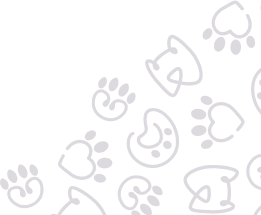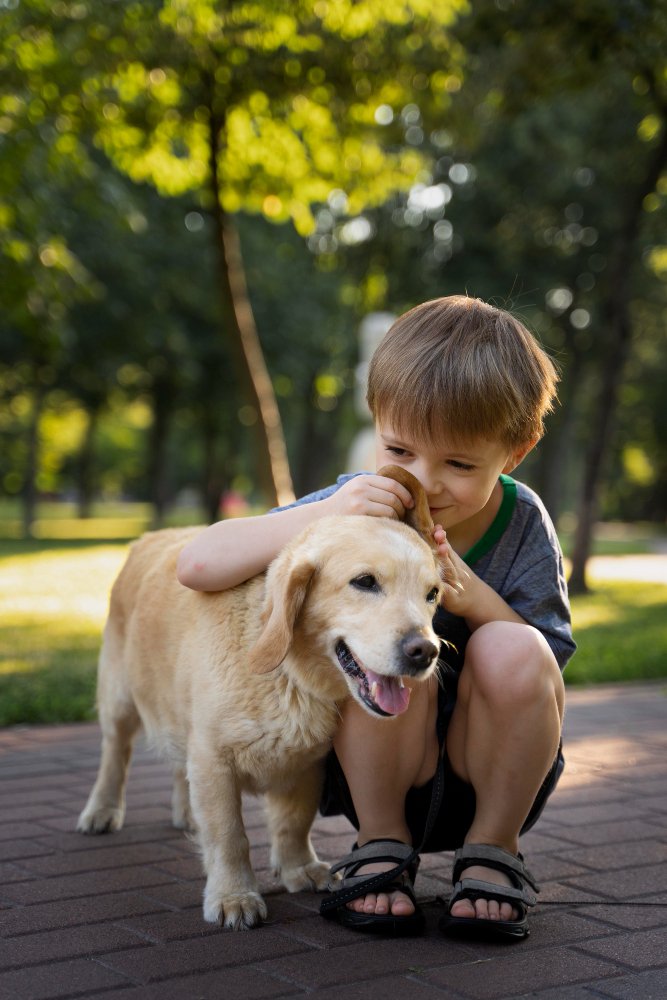

Personalized Canine Assisted Therapy
Canine-assisted therapy is an innovative intervention that uses trained dogs to help children develop targeted life skills in a fun, engaging, and emotionally safe environment. At Eastwind Cares, we specialize in pairing assistance dogs with children to support their areas for growth.
Each child is paired with a highly trained assistance dog specifically selected for your child and guided by a skilled interventionist. We begin with a thorough intake and assessment to understand your child’s strengths, needs, and goals. We also examine the child’s preferences to determine which assistance dog would be the best therapy partner.
Our sessions target skill development by creating goals that increase emotional regulation by assisting your child have more self confidence manage hyperactivity &focus, increasing self care skills and functional communication.

Targeted Life Skills Development
Our sessions are built around measurable goals to create a joyful and deeply effective therapy model.
Here are the areas of need that we address in our sessions.
Functional Communication
Increase functional communication skills including eye contact.
Emotional Regulation
Strengthen emotional regulation and resilience.
Independence & Self-Care
Foster independence and tolerance of self-care routines.
Focus & Attention
Build skills either executing tasks


How Our Sessions Support Your Child
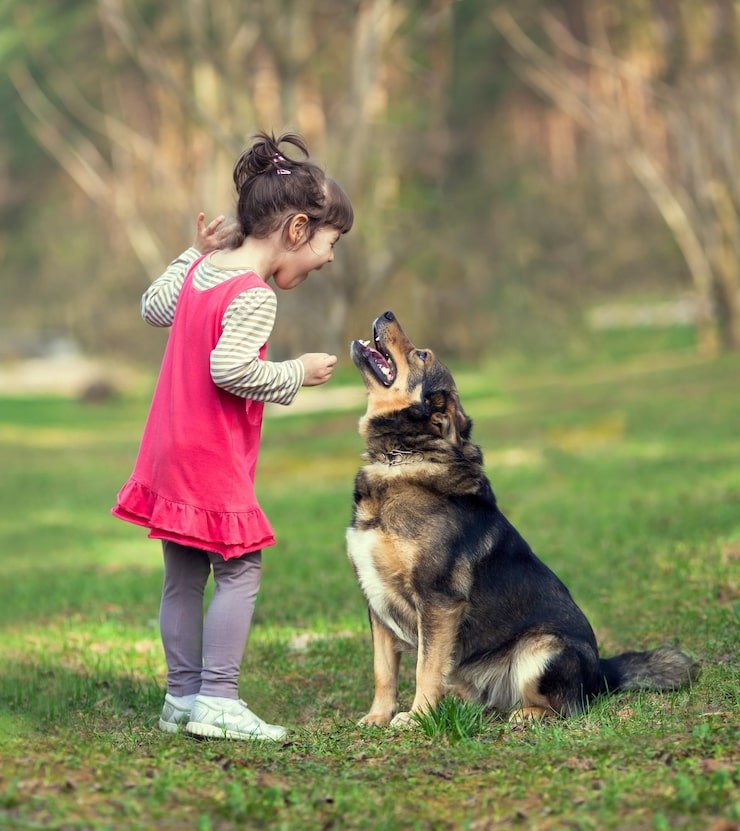


Challenges with Listening to Parents
Children often test boundaries. Yet, every age and stage of development poses different challenges with parents needing help. Parents are often unsure how to manage their child when they have challenging behavior and will scream, cry, and drop to the ground, especially when in the community. They are also often surprised with how difficult it can be to teach their child to listen to them without having to repeat themselves or scream. Our From Defiance to Discipline program supports parents by developing and practicing individualized techniques with a carefully selected assistance dog and child to ensure boundaries and house rules are in place.
- Teaches appropriate consequences
- Increases tolerance
- Works collaboratively
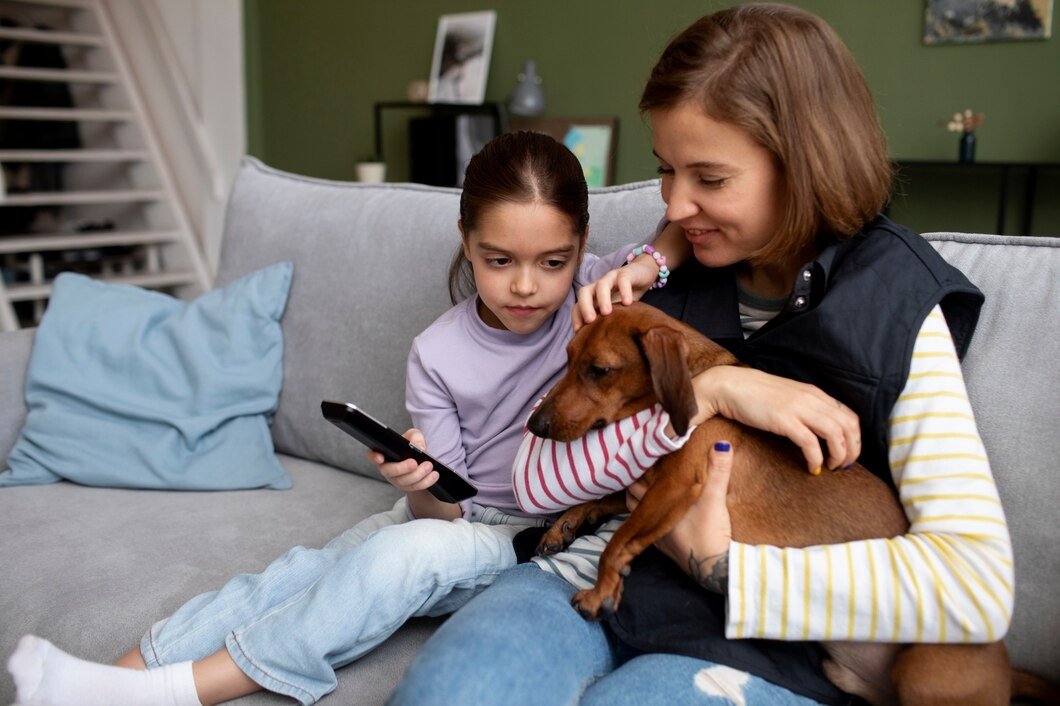


Challenges with Focus & Task Completion
If your child has persistent patterns of inattention, hyperactivity, and impulsivity special care is needed to develop ways to reduce the intensity of these characteristics with dog assisted therapy. Whether your child has a diagnosis of ADHD or not, we want your child to be successful and confident.
- Improves focus and task completion
- Reduces impulsivity and hyperactivity
- Teaches coping strategies
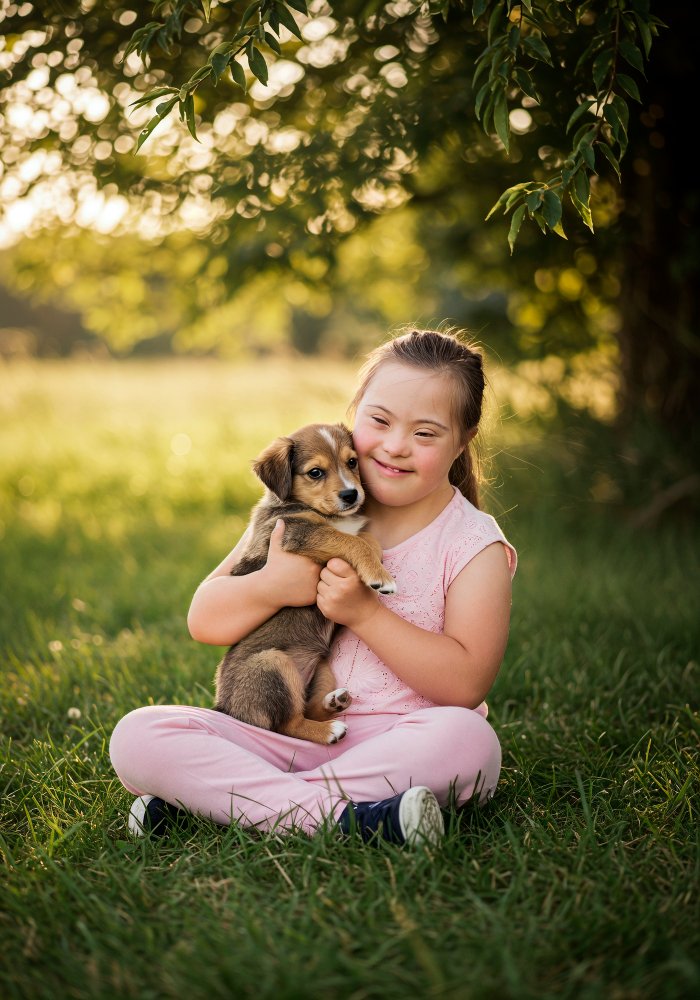



Challenges with functional Life Skills
Every child develops at a different pace. If there is a delay with how your child communicates, interacts with others, and behaves, dog assisted therapy provides an alternate way to build critical life skills to create as much independence as possible. From mild delays to more significant delays we individualize the sessions based on your child’s needs. If your child has autism or there is no specific reason why there are delays, we are here for your child.
- Functional life skills building
- Encourages communication attempts
- Increases tolerance
- Behavior reduction
- Supports global delays
- Generalizes skills across settings
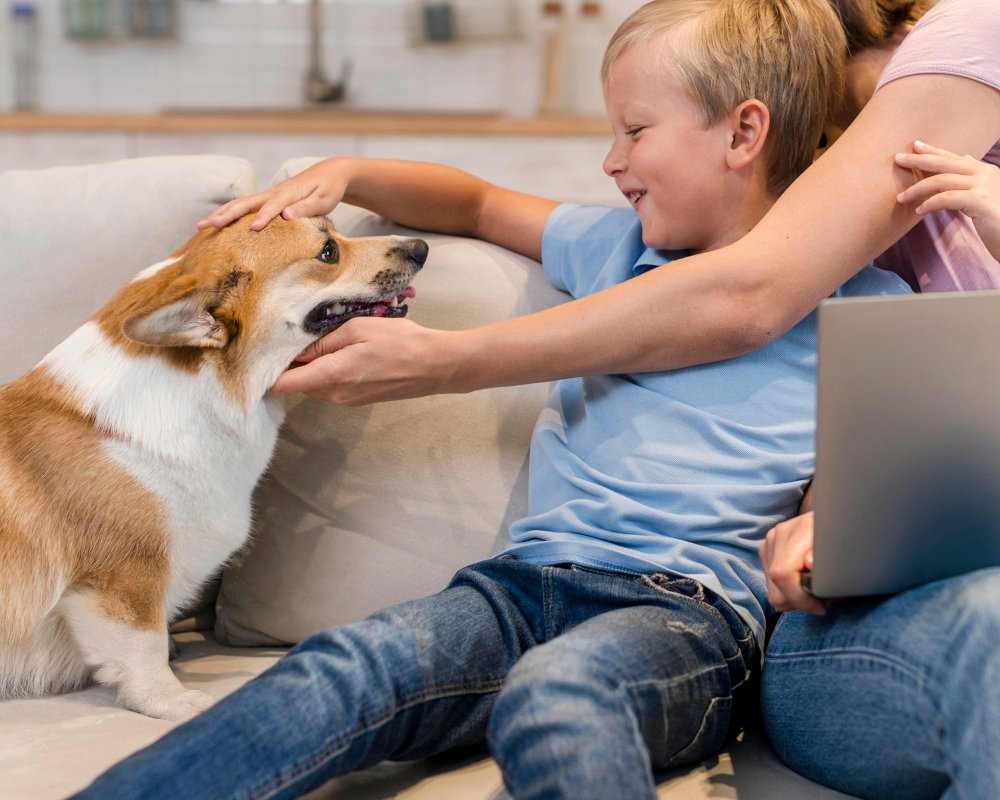


Family-Centered Support
We believe therapy works best when it includes the whole family. Parents and caregivers are welcomed into the process, receiving updates, guidance, and tools to support progress at home and in the community. If a child only demonstrates a skill in a 1:1 setting in a traditional center and not with the people in their lives, then we strongly believe that this is not good enough.
Many parents have said “I wish my child would listen and not scream, cry, fall on the ground.” Or state, “I would love to have my child tolerate nail clipping and showering without resistance and it require two people to keep my child still.” We listen. We hear you. We will help you.
Our team brings together leading experts in dog training and experts in behavioral science to create a therapy model that is joyful and deeply effective.
Eastwind Cares can help as an add on to your existing therapy. We believe that efficacy occurs when therapy is individualized, consistent, and done in collaboration with families. It’s not a one-size-fits-all approach, but a flexible framework that can significantly enhance development and quality of life for children with diverse needs.
Schedule Your Assessment

